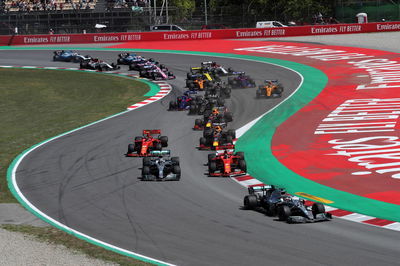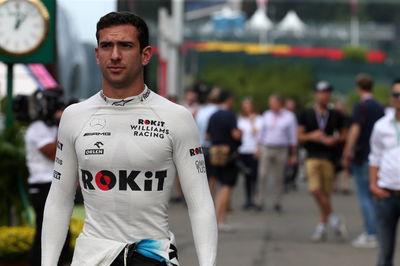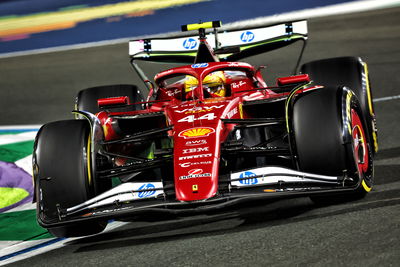Shorter tests, race weekends to combat F1 calendar expansion
Formula 1 chief Chase Carey has outlined a reduction in testing and a race weekend overhaul set are key changes to help relieve the strain of a longer race calendar in the future.
Since Liberty Media claimed control of F1’s operations, a major talking point has been the targeted expansion of the race calendar with focus on more races in the United States and Asian regions.

Formula 1 chief Chase Carey has outlined a reduction in testing and a race weekend overhaul set are key changes to help relieve the strain of a longer race calendar in the future.
Since Liberty Media claimed control of F1’s operations, a major talking point has been the targeted expansion of the race calendar with focus on more races in the United States and Asian regions.
Speculation has estimated the F1 calendar could reach 25 races in the near future having already grown to 22 races for 2020 which makes it the biggest season in the sport’s history in terms of world championship rounds.
F1 CEO Carey says he’s fully aware of the increased stress on all F1 personnel and says planned reductions to tests and race weekend formats will be a vital combat method.
While F1 pre-season testing is cut from eight days to six days in 2020, the year after will mark the start of a shortened three-day race weekend with no Thursday activities as scruinteering, media engagements and opening practice sessions are condensed into Friday’s action.
“We have put in place the ability to go to 25 [races per year] and we’ve been equally clear like with the teams it is a matter of quality not quantity,” Carey said in Abu Dhabi. “We are not trying to fill a number of slots. I think we care deeply about it and that is why we put efforts into trying to address and take some of the wear and tear off with the three-day weekend, which we think is still an essential part of our sport but we will modify Friday to provide less wear on the weekend.
“We have also modified testing by shortening the winter testing and reduce the in-season testing. All this is to manage that wear and tear and I think we can do more and we will continue to try to find ways to minimise that to build and healthy and global sport.
“We want to grow into a place like the US so then a second race in the US is important to grow the sport and having a broader presence in Asian too. There is a pressure of how you grow the sport unless you take it out of places that you don’t want to.
“Currently we do not race in Africa and I think it would be great for us to have a race in Africa. I think there are other visions and priorities in the sport that are important and we are very focused on achieving what is important for the sport for everybody in it. Ultimately the jobs for the people come from having a healthy sport. I think for everybody’s benefits we need a healthy sport and we will try to do it in a way that is aware of the pressure and wear and tear.
“I go to 21 races each year and will go to 22 races next year. Now I don’t necessarily go for the same length of time as others do but I am aware of it. It is a sport that has its challenges and I guess people decide to be in it with an awareness that there is a unique attraction and problems.”
Speaking alongside Carey, FIA President Jean Todt felt working in F1 should be seen as a privilege compared to the challenges people face in other walks of life.
“I feel we are so blessed as we are in a world where we love what we do, we have the passion and we are privileged, whoever is in Formula 1 is privileged,” Todt said. “Of course you have some duties – when I was in other positions in the sport I was working 18-hour days, six or seven days a week – because I had passion and I wanted a result. If you have loving family they will understand that and you don’t do it for all your life.
“We should not forget and we should be decent because we have an eight billion population and 800 million people that don’t have enough to eat or drink or have vaccinations. We are here to talk about Formula 1, but we must not close our eyes and forget what is happening for other people and other communities. We have to be blessed and all those in Formula 1 with much higher salaries and income than any other business they should be happy. It doesn’t mean it isn’t hard work but simply I think we should think about our position.”
Todt was also quick to downplay the likelihood to F1 reaching 25 races in the immediate future. The sport is still in negotiations to set up a Miami Grand Prix, while for 2020 F1 loses the German Grand Prix due to funding issues but gains both the return of the Dutch Grand Prix and the new Vietnamese Grand Prix.
“Next year we will have 22 races and I think it will be a long process before being close to 25 races,” Todt said. “There is so much emphasis on speculating about 25 races but at the moment we should concentrate on 22 which is the situation.”











